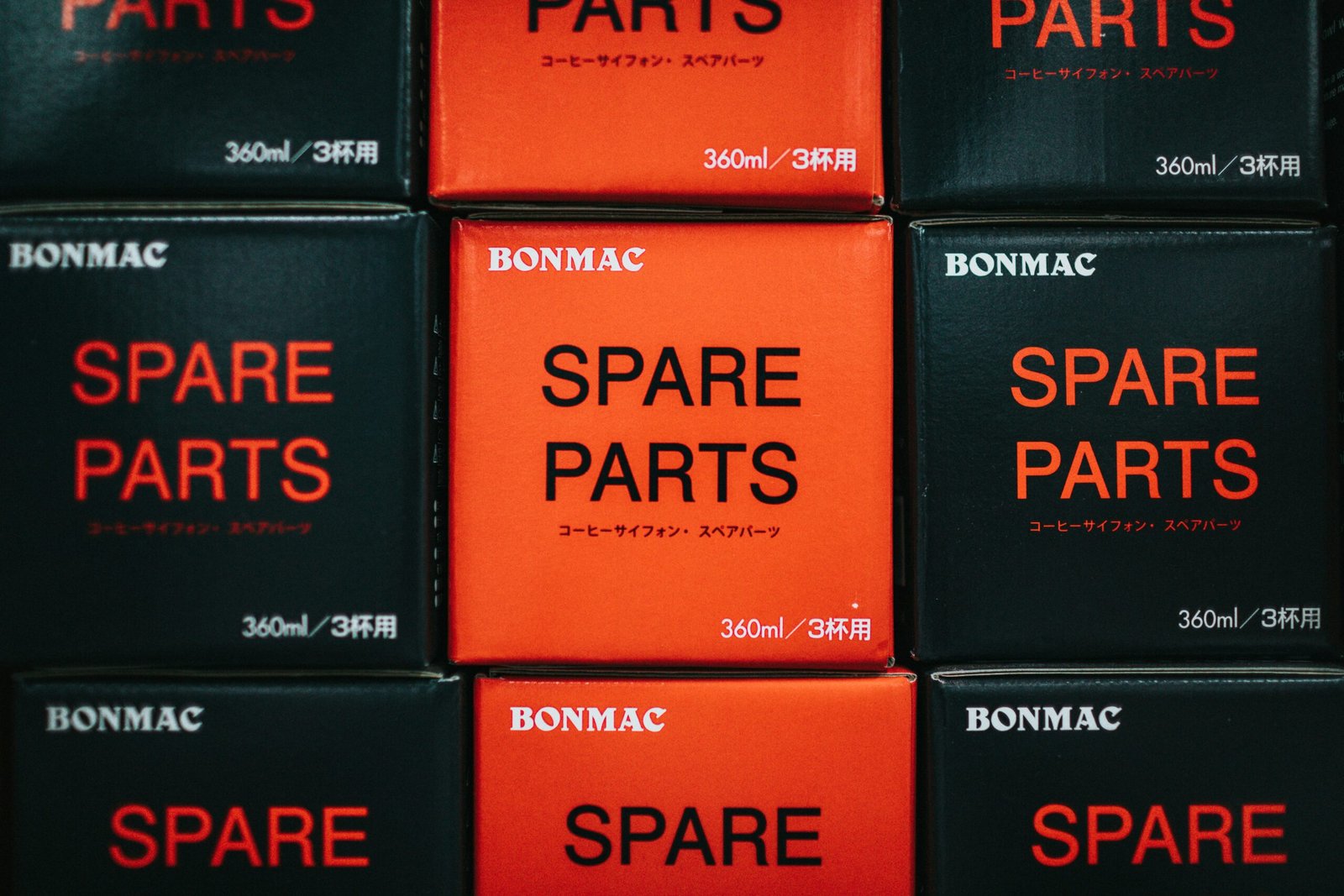Introduction to Consumer Trust and Parts Authenticity
In today’s market, consumer trust has become an essential factor influencing purchasing decisions, particularly when it comes to the authenticity of parts utilized in products such as vehicles and electronics. The growing complexity of supply chains and the prevalence of counterfeit components pose significant challenges for consumers who depend on the quality and reliability of their purchases. Authenticity is not merely a matter of consumer perception; it encompasses crucial issues related to safety, performance, and overall satisfaction with a product.
The potential risks associated with counterfeit parts are manifold. Unscrupulous manufacturers may produce lower-quality imitations that can fail to meet industry standards, leading to malfunctioning products that can jeopardize user safety. For instance, counterfeit automotive parts can contribute to vehicle breakdowns and accidents, while inferior electronic components might result in device failure or even hazardous situations such as fires. Such risks not only endanger consumers but can also tarnish the reputation of reputable brands that strive to deliver high-quality products. Thus, consumer trust in parts authenticity plays a pivotal role in maintaining both safety standards and brand integrity.
The insights derived from a recent survey shed light on consumer attitudes and expectations regarding authenticity. This survey aimed to assess consumer perceptions related specifically to parts authenticity, examining their understanding of the risks posed by counterfeit products and their trust in various brands. By employing a comprehensive methodology that included quantitative data collection through questionnaires and qualitative assessments via focus group discussions, the study provides valuable findings that could inform companies on improving their practices and communication strategies. Understanding consumer behavior surrounding authenticity is vital for both manufacturers and consumers alike, as it fosters informed decision-making and ultimately enhances trust in the marketplace.
Key Findings from the Survey
The recent survey on consumer trust in parts authenticity revealed several critical insights regarding the preferences and concerns of consumers today. A significant 85% of respondents indicated that parts authenticity is crucial to their purchasing decisions. This high percentage underscores a robust consumer sentiment that prioritizes genuine products over counterfeit alternatives. The implications of this finding indicate that consumers are increasingly aware of the potential pitfalls associated with counterfeit parts, which can range from diminished performance to safety hazards.
Moreover, when examining the experiences of consumers, nearly 30% reported having unknowingly purchased counterfeit parts in the past. This statistic highlights a pressing issue within the market, as many consumers may lack the necessary information to distinguish between authentic and counterfeit products. The negative repercussions of such purchases greatly influence their future buying decisions, as 70% of those who encountered counterfeit parts expressed heightened caution in their subsequent purchases.
Trust levels regarding parts authenticity also vary significantly based on demographic factors. For instance, younger consumers (aged 18-34) exhibit stronger skepticism towards parts authenticity compared to older generations, with only 65% expressing confidence in the authenticity of parts they purchase. Additionally, variations in income levels reveal that higher-income consumers are more likely to prioritize authenticity, with 90% of individuals earning over $100,000 annually emphasizing genuine parts. Geographical factors, too, play a role; consumers in urban areas demonstrate a greater awareness of authenticity issues compared to those in rural regions.
These findings collectively emphasize that while there is a strong demand for authentic parts, significant challenges remain in educating consumers about counterfeit risks and ensuring that they can make informed purchasing decisions. Addressing these issues through targeted initiatives may be essential to enhancing consumer trust in parts authenticity moving forward.
Impact of Brand Reputation on Consumer Trust
Brand reputation significantly influences consumer trust, particularly concerning parts authenticity. Companies that have cultivated a strong, positive reputation are often perceived as more credible, leading consumers to believe in the authenticity of their products. A notable example is the automotive industry, where brands like Toyota and BMW have built trust over decades by consistently delivering high-quality products. In contrast, companies that have faced issues with counterfeit parts or subpar products, such as certain electronics manufacturers, have witnessed a decline in consumer trust, highlighting the direct correlation between brand reputation and perceived authenticity.
Successful brands recognize that transparency is key to maintaining consumer trust. For instance, luxury brand Hermès provides detailed sourcing information for its products, ensuring customers are aware of the authenticity and quality of the materials used. This not only enhances consumer confidence but also fosters brand loyalty, as customers feel more connected to brands that prioritize authenticity and transparency. In today’s market, where counterfeit goods are prevalent, consumers are increasingly turning to brands that demonstrate a commitment to integrity and quality assurance measures.
On the other hand, brands that fail to address counterfeit concerns often experience reputational damage. An illustrative case is that of a footwear company that saw its reputation suffer after numerous counterfeit versions of its popular, high-end sneakers flooded the market. Consumers became skeptical about the authenticity of all products offered by the brand, resulting in a downturn in sales and trust. This scenario underscores the necessity for brands to implement robust measures against counterfeiting and communicate these efforts effectively to consumers.
In conclusion, a strong brand reputation is paramount in establishing and maintaining consumer trust, particularly in the realm of parts authenticity. Companies can enhance this trust by prioritizing transparency, emphasizing quality, and engaging in effective communication strategies to reassure consumers of their commitment to authenticity and ethical sourcing practices.
Strategies for Enhancing Consumer Trust
Enhancing consumer trust in parts authenticity requires a multifaceted approach that encompasses various strategies. One of the primary recommendations is to improve supply chain integrity. By ensuring that each step in the supply chain is transparent and accountable, businesses can demonstrate their commitment to authenticity. This might include conducting regular audits, establishing stringent supplier standards, and prioritizing reliable partnerships. As a result, consumers can feel more confident in the products they purchase, knowing that they originate from legitimate sources.
Adopting advanced tracking technologies also plays a pivotal role in bolstering consumer trust. Technologies such as blockchain offer a decentralized and secure way to verify the authenticity of parts throughout the supply chain. Implementing such systems allows for real-time tracking and verification, making it easier for consumers to confirm that their products are genuine. Businesses should actively promote these technologies and educate consumers on how to utilize them for verification purposes, thus fostering a sense of security in their purchasing decisions.
Engagement in consumer education is equally crucial. Informative campaigns highlighting the importance of parts authenticity and how consumers can identify genuine from counterfeit products contribute significantly to trust-building. Educational content can be disseminated through various channels, such as websites, social media, and in-store materials. Moreover, businesses can benefit from creating feedback mechanisms that allow consumers to share their experiences and concerns. Actively listening to customer feedback and addressing issues promptly fosters a transparent relationship that encourages loyalty.
Finally, leveraging certifications and warranties can further enhance consumer trust. By clearly displaying certifications from respected industry organizations, businesses can reinforce their credibility and commitment to quality. A robust warranty policy also assures consumers of the company’s confidence in its products, encouraging informed purchasing decisions. In conclusion, implementing these strategies collectively paves the way for businesses to build and maintain strong consumer trust in parts authenticity.









